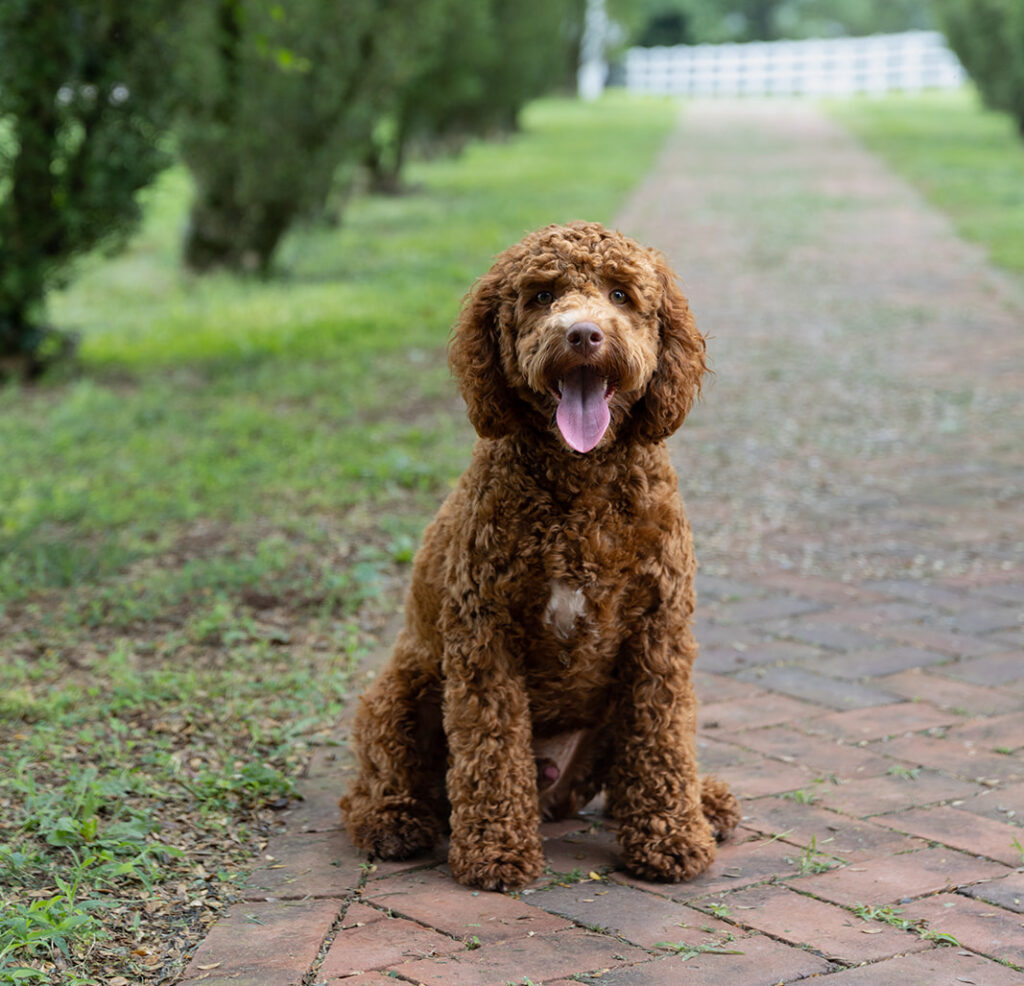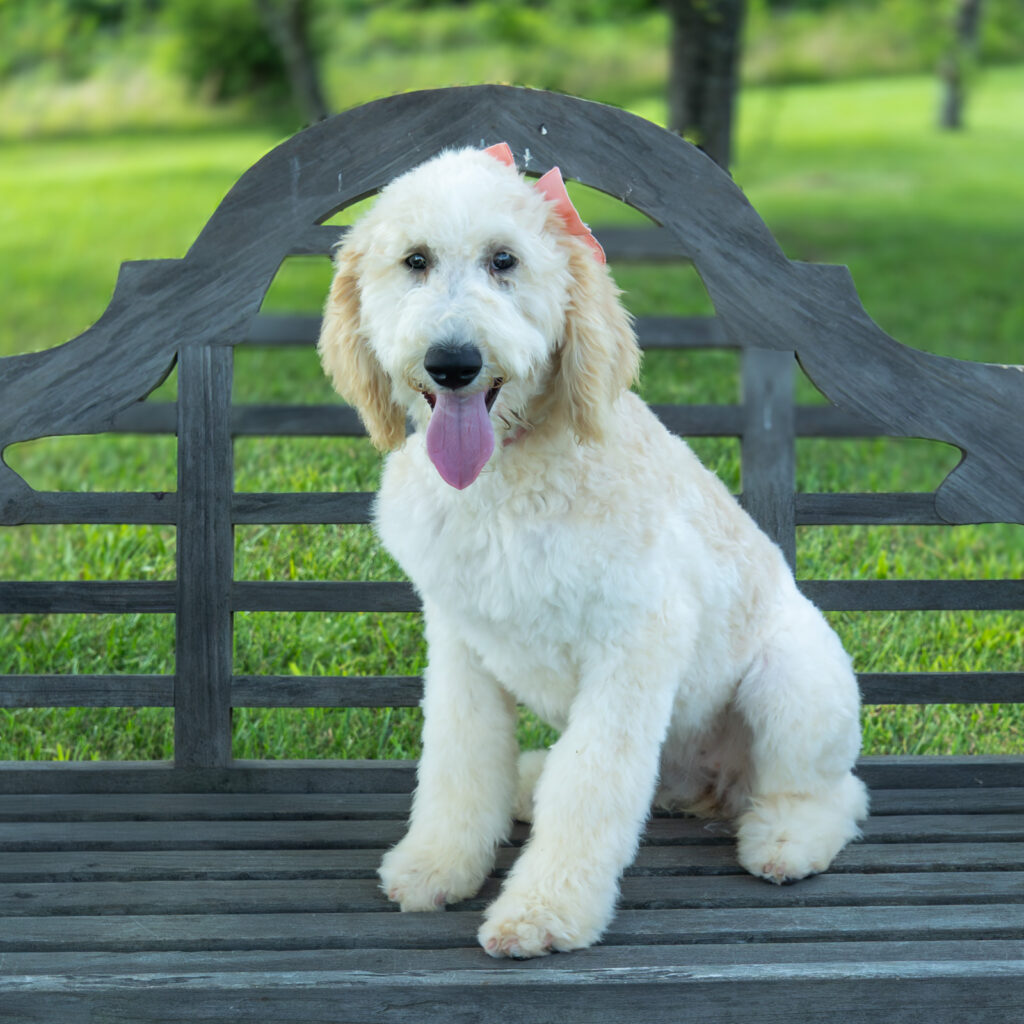Indulge in Huggable Happiness with Our Allergy-Friendly Doodles
Happy, healthy, & hypoallergenic. Lovable Goldendoodles, Labradoodles, and Cockapoos for your family.
Fetch Your Perfect Companion Here!
Can I Visit My Puppy?

Step 1: Browse Our Puppies
Start your journey by exploring our available Labradoodles, Goldendoodles, Cockapoos, and trained puppies.

Step 2: Make a Reservation
Once you find your perfect puppy, contact us to request a reservation form – or if you have any questions about choosing between puppies. We can arrange an in-person or virtual visit before you make your decision!

Step 3: Stay Updated
After reserving your puppy, we'll send you regular updates on your puppy's progress and well-being until they are old enough to go home.

Step 4: Personalized Delivery
When it's time for your new puppy to join your family, one of our loving staff members will hand-deliver your puppy anywhere in the 48 contiguous states.
Embrace a Furry Friend
We’re experts in breeding non-shedding Goldendoodles, Labradoodles, and Cockapoos.
We don’t just sell Doodles; we provide you with a lifelong companion meticulously raised and cared for. On top of that, our comprehensive training program guarantees your new puppy’s readiness for a happy, healthy life.
Proudly operated by the Shade family in South Central Virginia, our farms are staffed by devoted family and friends.
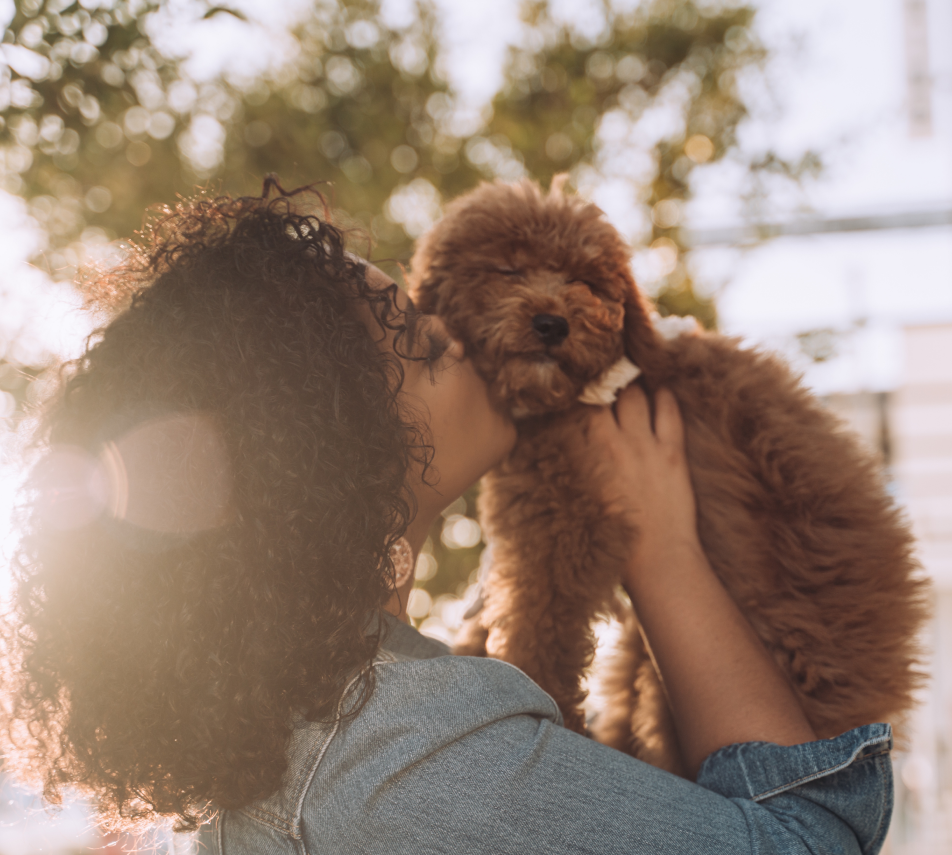
Don’t Sit, Stay Informed! Contact Us!
Considering adding a new furry member to your family? Look no further! Contact us now to receive all the information you need about our adorable puppies!
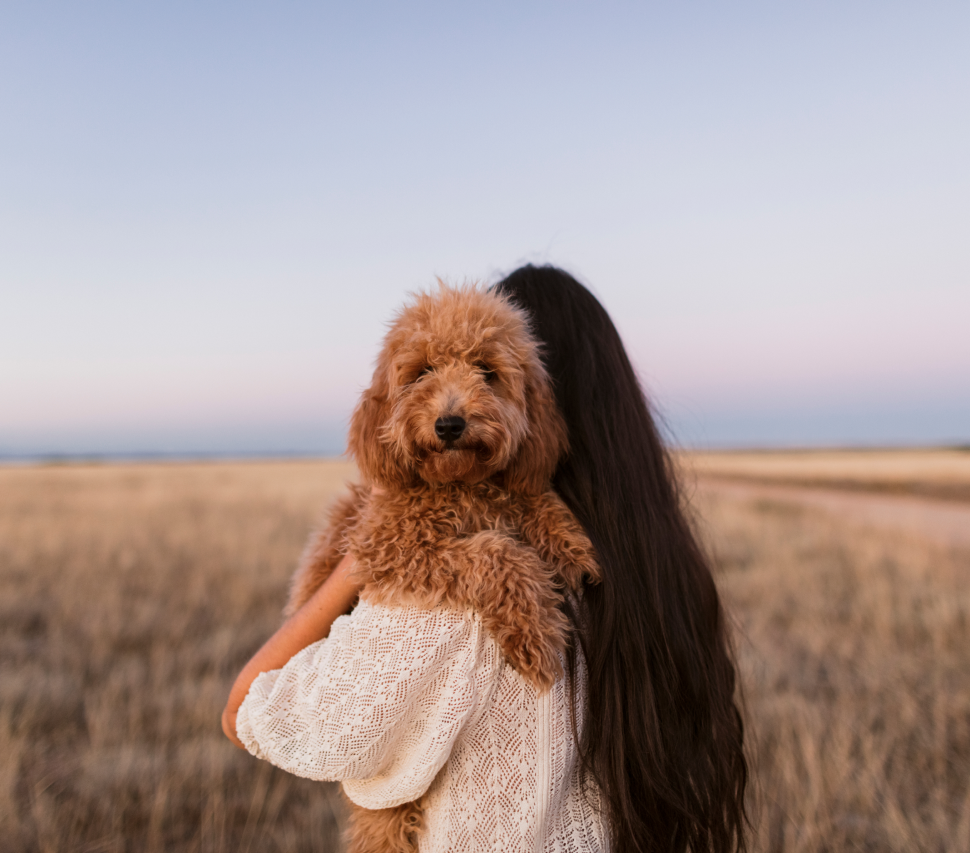
Exceptional Doodles
At Pride and Prejudoodles, we prioritize the well-being of every pup. Every Doodle undergoes extensive health testing and is carefully bred to be non-shedding and hypoallergenic.
When you welcome one of our pups into your home, you’re embracing a unique set of benefits:
- Allergy-Friendly & No Messy Fur
- Therapeutic Quality
- Effortless Care & Low Maintenance
- Gentle Nature & Non-Aggressive
- Raised with Love on Our Family-Operated Farm in Virginia
- The Perfect Fit for Active & Health-Conscious Homes
Tail-Wagging Reviews

Marie Caraballo

Isabel Hoyt
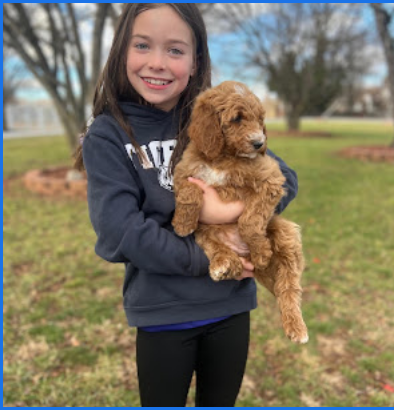
Ashley Montgomery
Ruff Schedule? Opt to Enroll Your Doodle in Our Training Program
After picking from one of our available doodles, you’ll have the option to enroll them in our 1 or 3-month training program!
During the training period, your puppy will reside in the secure, nurturing environment of a Certified Dog Trainer’s private puppy home. This immersive experience lays the foundation for lifelong good habits from day one.
Our aim? To spare you the challenges of early teething and potty training, ensuring your puppy returns home with impeccable behavior, ready to seamlessly integrate into your loving household.
Fetching Facts
FAQs
Do you have questions about doodles or training?
Explore our FAQs for expert answers to your questions!
Free Guides
Ready to embark on your journey as a responsible pet parent?
Our free guides are here to assist you every step of the way.
Health & Non-Shedding Guarantee
At Pride and Prejudoodles, we stand by our commitment to provide you with happy, healthy, and non-shedding Doodle companions.
Learn more about our health and non-shedding guarantee

